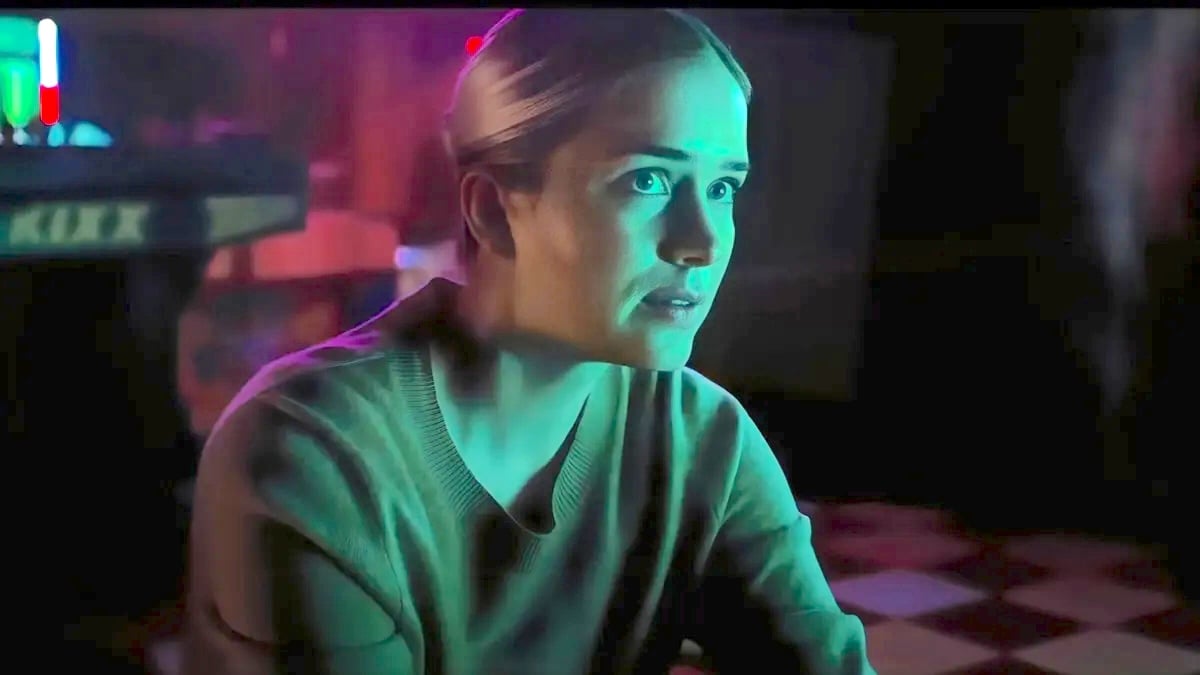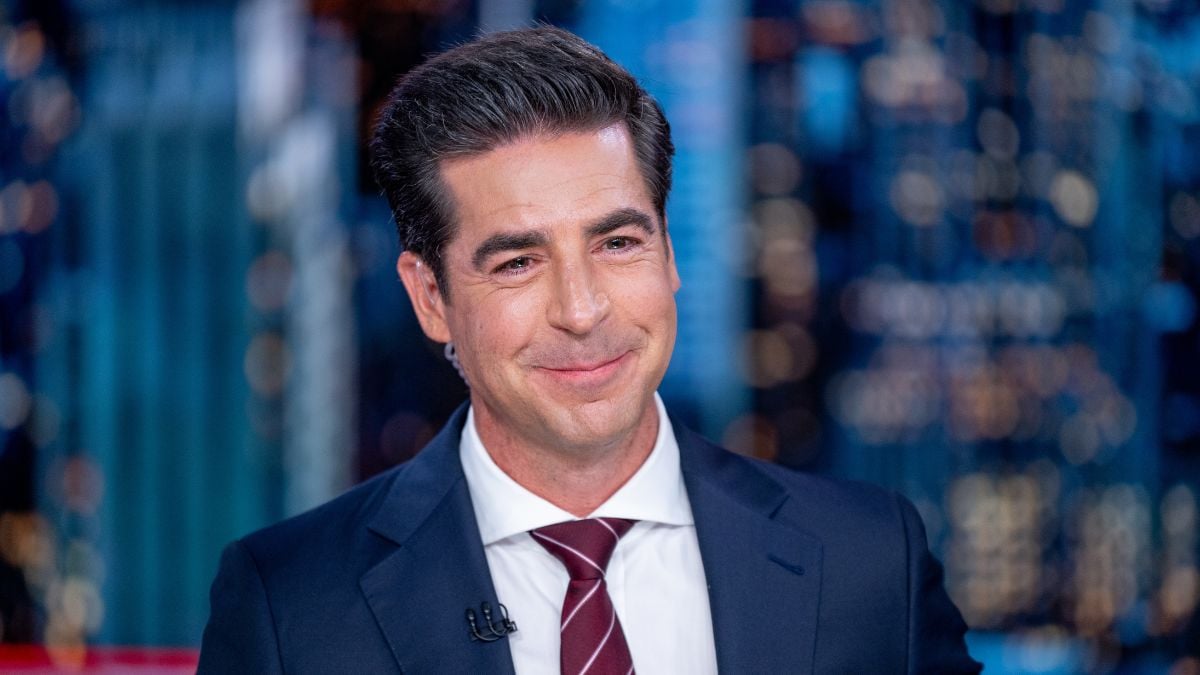
Seven episodes were provided prior to broadcast.
TBS’ newest stab at original comedy fare tracks the hyper-random shenanigans one family encounters on a road trip from Syracuse, New York all the way down to Fort Lauderdale, Florida. There’s an overly enthusiastic dad, a loving and protective mom, a dumb kid, and a smart one. So, yes, The Detour‘s timing after last year’s lackluster Vacation reboot can be seen as admittedly poor (hell, show leads Jason Jones and Natalie Zea even look a little like Ed Helms and Christina Applegate).
The big, bright, audaciously funny positive side of The Detour is that the show is big, bright, and – you got it – audaciously funny. From the minds of star Jason Jones and his real-life wife Samantha Bee (who has her own critically acclaimed late night show on the network), the rollicking sitcom hits one unapologetically racy milestone after another, with effortless, cutting abandon. It plows through the racial stereotypes of an offensive chain restaurant and lawful pedophilia, among other comedic touch-points, as the family car (“Blue Thunder”) plows through ditches on their epic quest to “Fort Licker-dale” (so says family dum-dum Jared, played by Liam Carroll, renaming their end-game destination).
Potty humor like that is abundant in The Detour (the best is a particularly idiotic summation of the phonetic sounds of Pennsylvania), but the show never feels debaucherous. That’s mostly because it’s built off a pretty great family base: Nate (Jason Jones) is nothing new as the chaotic father figure determined to see his family to the promised land, but a screwball side-plot about the real intentions of the great escape from New York shifts The Detour into something far more than a simple family vacation comedy. He gets a lot of the exasperated, bleeped-out remarks reserved for the leads of these types of shows, and nails some really brilliant, non-verbal bouts of physical comedy, particularly in a prolonged unexpected skinny dipping sequence in episode 2.
His wife, Robin (Natalie Zea) wanted to fly to Fort Lauderdale, so has to take all of the drama of the surprise road trip in stride. Coming off more serious fare like The Following and Justified, Zea is a minor revelation in reserved, passive aggressive crack-ups. She earns The Detour its first genuine guffaw when, as her son Jared attempts to navigate the intricacies of putting a car in neutral while she and Nate push it forward, he admits he’s trying his best after mistaking the brake pedal for gas. “That’s the disappointing part, honey,” she deadpans. The show revolves around Nate’s indiscretions but never even momentarily presents Robin as the lonely, nagging housewife. They’re kind of equally terrible parents.
Similar to Vacation, The Detour makes both Robin and Nate gullible to some truly enormous misunderstandings, but where the most recent National Lampoon reboot idled in on a simple fecal joke with no real follow-through, TBS’ new series wallows in these moments. Obviously the five-hour structure lets Jones and Bee stay longer on certain subplots, but it feels more adept at deconstructing the fallacies of its characters within heightened situations than most situationally awkward comedies have in recent memory. One particular storyline (which arcs over two episodes in the middle of the season) centers around a B&B, a rich doctor, his Russian fiancée, and a wedding; the climax it builds up to is the stuff of cringe-worthy, brilliantly staged comedy gold.

And it’s that prickly sense of humor, evident in every detour within The Detour, that makes the show so endearing. Bee and Jones create a roadmap of entirely expected tangents to drive you through the story, from a low-budget hotel to a themed roadside restaurant. But it’s the minute-to-minute, crackling dialogue that fuels Blue Thunder all the way down to Fort Lauderdale.
The show isn’t afraid to tackle taboo subjects, but its simplest turns of phrase pack the biggest knockout blows. The particular way in which a tired, possibly stoned attendee of the Swift Stay Suites pronounces Nate’s last name is like something Matt Stone and Trey Parker would come up with: deceptively simplistic yet uproarious upon repetition and, subsequently, hard to forget.
The Detour‘s bread and butter is tackling topics that most families would be keen to avoid on summer vacation, which makes sense given Bee’s newly earned spot as the (only) queen of late night. In that pillaging-of-the-new-world themed family restaurant, “Conquistadors” (they serve their meals with a geno-side of rice), Nate has to justify a particular Asian stereotype accidentally uttered by Jared, and Robin ends up next to a Bible-thumping priest who begins encouraging wise-ass Delilah (Ashley Gerasimovich) to put aside empirical scientific evidence and embrace Jesus. Other legs on the trip bring up subjects like everything from abortion to re-blogging journalism, but The Detour never feels coarse or as if it has an agenda, because of the epically defective ways that Nate and Robin not only explain everything to their kids, but deal with it all themselves.
It’s a learning experience for everyone involved, and it would have been entirely crass, exploitative, and plainly gross if The Detour wasn’t as funny as it is. Thankfully, it is, and the show totally holds up to the structure of an occasionally repetitive, frustrating road trip with family over the first seven episodes, even though some detours are better than others. Although even the best of the family’s shenanigans go on too long (that B&B mid-way through the season particularly), there’s a genuine affection for them in the writing that feels real and earned, a result of the creators drawing on their own road-trip stories. After witnessing one of the absolutely most brutal excrement gags I’ve ever seen put to film, I shudder to question the veracity of each storyline.
Still, if whatever they had to go through led to this, it was worth it. The Detour‘s welcomely serialized structure reveals a rhythmic predictability by episode 2, and not all of the lines land (particularly from the kids), but this is the kind of new-age, modern sitcom that feels fresh and exciting, even despite its obvious inspirations. It proves that even if you start off with the most banal of story ideas – a family goes on vacation, bad things happen – if you write clever jokes, craft entertaining characters, and pack enough of a pay-off even in the confines of a single-camera comedy, something decades old can feel new again.





Published: Apr 10, 2016 09:28 am